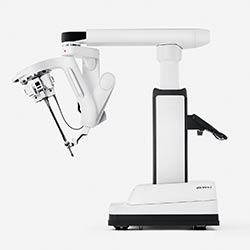About urology
Urology is the branch of medicine specific to problems and diseases of the urethra, bladder, and kidneys in both men and women. Urological conditions include:
- Cancer (kidney, bladder, prostate, penile, testicular)
- Chronic or recurring urinary tract infections
- Infertility
- Interstitial cystitis (painful bladder)
- Kidney stones
- Prostatitis and enlarged prostate
- Sexual dysfunction
- Urinary incontinence or overactive bladder
Symptoms and diagnosing
Symptoms include:
- Abdominal pain
- Blood in the urine
- Changes in urinary pattern
- Frequent urinary tract infections
- Inability to urinate
- Incontinence
- Male impotence or erectile dysfunction
- Painful urination
A variety of tests are used to identity and diagnose urological conditions, including:
- Biopsy
- Computed Tomography (CT) scan
- Cystogram (X-ray of the bladder)
- Cystoscopy (views the urinary tract through a small scope)
- Magnetic Resonance Imaging (MRI) scan
- Ultrasound
- Urine tests
- Urodynamic tests (measure the pressure and volume inside the bladder)
Treatment and surgical options
After diagnosis, treatment of urological problems depends on the condition. Medical management, including medication, and surgery are often options. Surgery is commonly used to:
- Break up or remove kidney stones
- Relieve stress incontinence
- Remove a tumor
- Remove part of a kidney
- Transplant a kidney
If you are facing a urological condition that requires surgery, your doctor may recommend robotic surgery, a minimally invasive (reduced trauma to the body) procedure enhanced by the precision of robotics. The Virginia Institute of Robotic Surgery offers the latest advances in robotic-assisted surgery, offering many benefits for our patients.
Depending on your specific health and the nature of your condition, you may have the option of open surgery, performed through one large incision, or minimally invasive laparoscopic surgery, performed through several tiny incisions. Minimally invasive surgeries include laparoscopy and robotic-assisted surgery.
Pioneering next generation robotic technology

Retreat Doctors’ Hospital is the first and only hospital in Virginia to perform urological surgery using the latest robotic technology designed for single-incision surgery, the daVinci® SP Surgical System.
Traditional methods for prostate surgery have involved larger incisions, post-operative side effects, greater risk of excessive blood loss and infections as well as increased pain and longer hospital stays.
Recently cleared by the U.S. Food and Drug Administration clearance, the daVinci® SP Surgical System makes robotic laparoscopic, single-site surgery possible through a single incision, about one inch long. The new single port system provides our surgeons with more precision, a clearer image of the surgical field, as well as improved patient access.
Benefits of robotic surgery
Robotics have revolutionized urological surgery, where the surgical site is often tightly confined and close to nerves affecting urinary control and sexual function. The da Vinci® System features a magnified 3D HD vision system and special instruments that bend and rotate far greater than the human hand. These features enable surgeons to operate with enhanced vision, precision, dexterity, and control. Your surgeon is in full control of the robotic instruments at all times—the instruments do not move on their own.
Benefits include:
- Faster recovery time
- Lower risk of infection
- Less pain
- Less scarring
- Shorter hospital stay
Resources
Consider learning more about your diagnosis and surgical options. The American Urological Association maintains a listing of Resources and Initiatives that may be helpful. Ask your doctor or medical team for additional educational and support resources in your area.